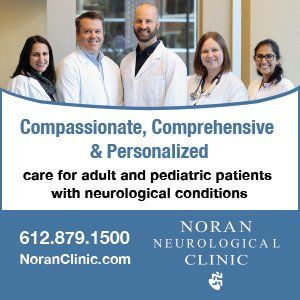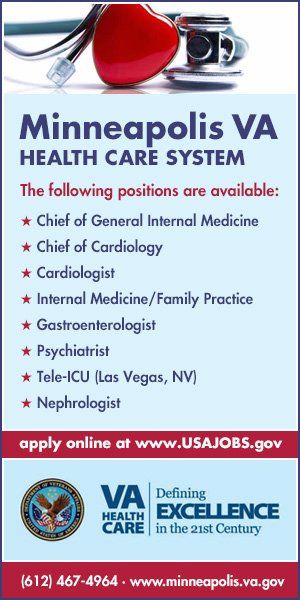e have seen increases in the rates of depression and anxiety since COVID – not just in Minnesota but across the country and the world. People are struggling with their mental health. Much more than in the past, people are willing to talk about their mental health and seek help. Employers in particular are promoting mental health in the workplace and publicizing their mental health benefits. While it’s good to see the barriers to seeking care come down, the increased demand has stressed our mental health system to the point that people rarely are able to access the right services at the right times. People wait months to see a psychiatrist or therapist, even longer for more intensive care.
Behavioral Health
A Post Pandemic Crisis
Inadequate mental health care access
BY Sue Abderholden, MPH
Supply and Demand
The problem is that our mental health system simply cannot meet the demand. There are simply not enough people to do the work. The job vacancy rates in mental health and substance use counseling professions was 26% in 2021 versus 8% in 2019 and had the highest vacancy rate compared to all other health care professionals according to the Department of Employment and Economic Development.
The Minnesota Department of Health shared that the number of social work graduates from Minnesota institutions in 2016 was 583 and the projected demand for 2016-2026 would be 1,736. Only 50% of Minnesota graduates from 2007-2014 from psychology, social work, family and individual counseling and substance abuse counseling went on to become licensed. Professionals moving to Minnesota from other states face hurdles in becoming licensed here as do professionals coming from other countries.
The mental health system is largely funded by Medicaid. These rates are shockingly low making it difficult to attract people into the field. We have seen units closed, residential facilities using only half the beds, children’s residential facilities closed, and people boarding in the emergency departments. The Minnesota Department of Human Services recently released its study of mental health care provider reimbursement rates (Legislative Report: Minnesota Health Care Programs Fee-For-Service Outpatient Rate Study. January 22, 2024) and found that many of the rates for outpatient services should be increased between 13% and 107%. For example, psychotherapy for a child is $128.40 for 60 minutes and the study stated it should be $148.50.
Much more than in the past, people are willing to talk about their mental health and seek help.
Rates are tied to what people get paid. According to 2019 data from the Minnesota Department of Employment and Economic Development, many social workers make less than respiratory therapists and dental hygienists, despite their role requiring greater education and supervisory hours. The cost of obtaining a master’s degree and paying for supervision makes it difficult to choose a mental health profession as a career.
Children’s mental health providers from Aspire Minnesota recently responded to a survey stating that low rates lead to difficulty recruiting, hiring, and retaining staff; programs closing or shrinking; increased staff burnout. When programs close or shrink and children cannot access the care they need, they don’t get better. Their illness often becomes more severe and complex.
Legislative Interventions
An important solution to the mental health crisis and workforce shortage is to increase rates. Last session legislators provided a 3% raise, but this wasn’t enough to address the incredibly low rates acknowledged in the study. When a system largely relies on Medicaid the low rates are not offset by private insurance payments. While we continue to work on enforcing mental health parity and network adequacy – both of which would help raise rates and improve access – we need to increase Medicaid rates.
While increasing rates will help address the mental health crisis we are facing, it won’t fully address the workforce shortage. The mental health field has long recognized the shortage of workers, beginning with President Eisenhower’s landmark mental health report where they found we had a severe shortage of child psychiatrists. We need to identify how to recruit more people into the field and help those who have completed their graduate education become licensed. Most of the workforce is White and we need to do better creating a more diverse workforce and one that is culturally informed and responsive.
A nonscientific survey conducted by NAMI Minnesota found that barriers to becoming a licensed mental health professional were numerous. It included the cost of the exam and license fees, cost of obtaining supervision or not able to find a culturally specific supervisor, cost of test preparations, lack of culturally informed tests and lack of paid internships or low pay while completing number of required hours for licensing. There is no review showing that the tests are culturally informed or truly predict if someone will be a good mental health professional. Many advocated for an alternative path to licensure.
In 2013 the Minnesota legislature required Minnesota State Colleges and Universities (MnSCU) to hold a mental health summit and to write a state workforce plan in order to develop a comprehensive strategy to increase the number of qualified people working at all levels of our mental health system, ensure appropriate coursework and training and create a more culturally diverse mental health workforce. Much work was done prior to the summit including listening sessions around the state, surveys and interviews. Then a summit was held that involved the Department of Human Services, MnSCU, U of M, private colleges, mental health professionals, special education representatives, child and adult mental health advocates and providers and community mental health centers.
There were 23 recommendations. Many focused on improving access to supervisory hours, requiring health plans to reimburse for care provided by clinical trainees, improving access to higher education mental health programs in rural parts of the state, expanding capacity to train Certified Peer Specialists and Family Peer Specialists throughout the state and streamlining paperwork.
Assessing Progress
Many of the recommendations did pass the last 10 years. Here is a short list of the advances.
Continuing Education: Requires continuing education for mental health professionals to include at least four hours addressing the psychological needs of individuals from diverse socioeconomic and cultural backgrounds.
Culturally Informed and Responsive Mental Health Task Force:
Creates a task force to make recommendations on recruiting diverse mental health professionals, training all mental health providers on cultural competency and cultural humility, assessing the quality of current efforts to provide culturally competent care and to increase the number of mental health organizations owned, managed, or led by someone from the Black, Indigenous and people of color (BIPOC) community. The task force will be releasing its final report soon and is looking at alternative pathways to licensure, create mentorship programs in high schools, focus on the quality of CEU training to become culturally informed and responsive.
Our mental health system simply cannot meet the demand.
Increasing Diversity of Mental Health Supervisors: Creates a grant program for mental health professionals of color or from underrepresented communities to pay for the coursework to become supervisors.
Loan Forgiveness: Expands to all mental health professionals and LADCs if they practice in rural or underserved urban communities and help pay for student loans.
Supervision: Funds specific programs that serve a higher percentage of people on Medicaid to provide free supervision. Allows mental health trainees to meet their supervisory requirements using real-time two-way interactive audio and visual communication.
Cultural and Ethnic Minority Infrastructure Grant Program: Funds providers from cultural and ethnic minority populations including LGBTQ+ that can be used for workforce development, conducting outreach and education, culturally responsive services, training providers on cultural humility and responsiveness, providing interpreter services in IRTS and children’s residential treatment, and case-specific consultation.
Psychiatry: Funds five psychiatry residency slots.
Physician Training Program: Creates a program to train pediatricians and primary care physicians alongside psychiatrists to improve their skills and knowledge treating patients with mental illnesses. This includes assessments, pharmacological therapy and community resources.
Exposure to the Field: HealthForce Minnesota has information for students about the various careers in the mental health field.
Consultation: Medicaid pays for primary care providers to consult with a mental health professional.
Moving Forward
While these are great programs working to address the shortages, there is more we need to do. The Peer and Family Peer workforce is small and the dollars to train more even smaller. There is no “oversight” body so we cannot track their continuing education requirements nor is there anywhere to file a complaint. While there were dollars appropriated last session to increase the trainings, our system falls far short of the recommendations from the Substance Abuse Mental Health Services Administration (SAMHSA) for developing a robust peer workforce.
Another idea to bridge the disparities in our mental health system is to create a certificate program on mental health for community health workers (CHWs). CHWs are from diverse communities and are skilled at providing health education and conducting outreach.
There are two proposals that have yet to pass the legislature. One is a “grow your own” program. People working in a community mental health program in a nonprofessional role may be very interested in becoming a mental health professional but don’t have the resources for a college or master’s degree. This program would pay for tuition.
The second proposal would create a Mental Health and Substance Use Center within the Minnesota Department of Health. The center would track and analyze the workforce, create programs to expose students to these careers, create a website for “one stop shopping” to explain the various career paths, and develop recommendations to address barriers and gaps.
As we work to expand our mental health system we need to pay for services and supports that are not based on Western approaches to mental health care. Several reports have identified paying for elders, acupuncture, drum assisted recovery therapy, Ayurvedic medicine, shamanism, cultural healers or brokers.
It’s important to note that work has been done to both analyze the problem and create solutions. Progress has been made, but more needs to be done. The Kaiser Family Foundation report in 2023 identified four strategies states are taking to address the workforce shortages:
- Increase Medicaid rates
- Reduce administrative burdens
- Extend the workforce through new provider types
- Speedy claims reimbursements
As we continue to distance ourselves from the pandemic many changes and improvements are being made all across the health care delivery spectrum. The problems with providing mental health care were very clear before COVID and even more so now. Seemingly this increased clarity includes greater awareness of the obvious connection between mental health and the impact it has on physical health. There are many outstanding solutions to the problems of helping Minnesota meet the increased needs of providing mental health services. It will take funding and resolve to make them happen.
Sue Abderholden, MPH, is the executive director of NAMI Minnesota (National Alliance on Mental Illness).
MORE STORIES IN THIS ISSUE
cover story one
Freedom Echoing: A legislative fix for health care?
By Kip Sullivan, JD
cover story two
Fall-Prevention Research: Improving health and cost savings



















